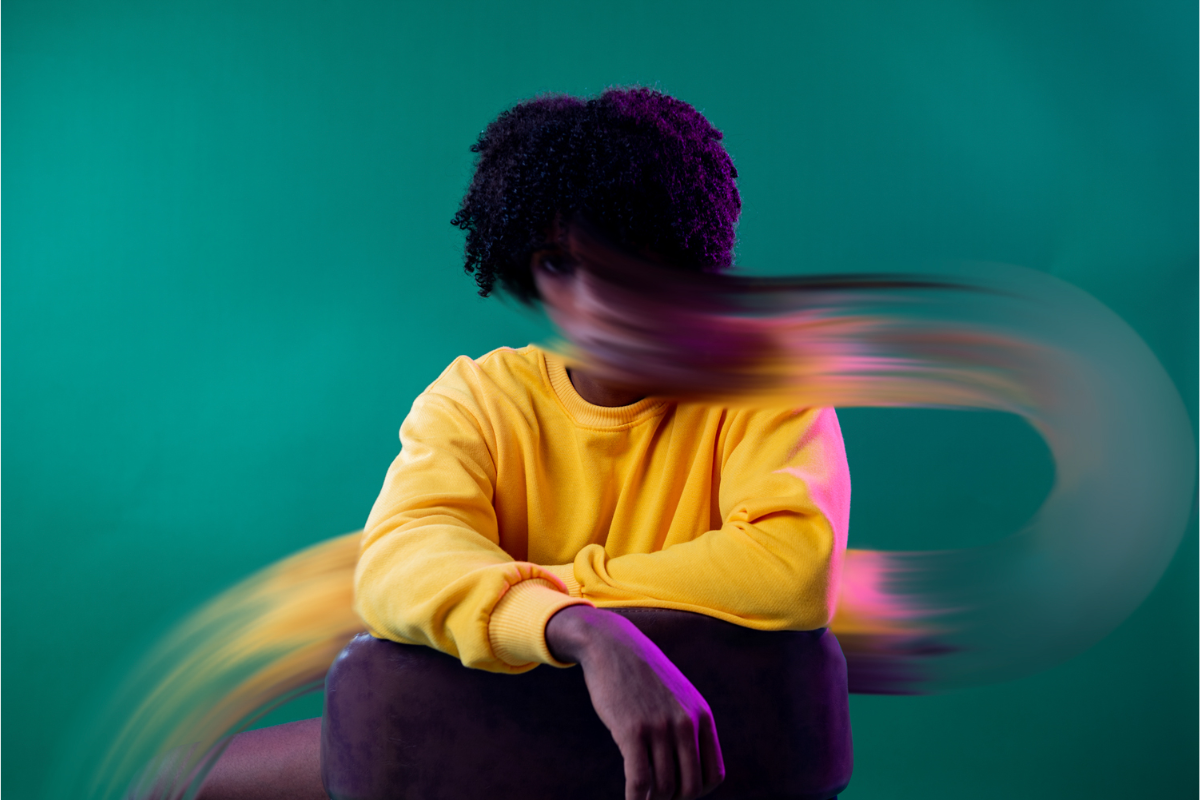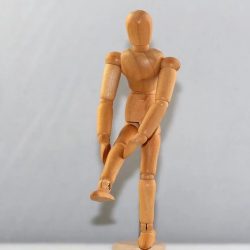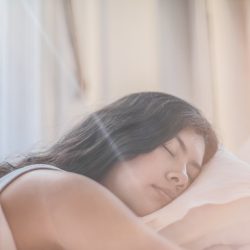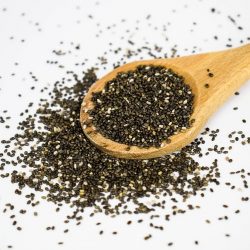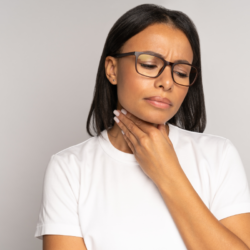Stress and anxiety are unwelcome companions in our daily lives, affecting us at different levels. Constant agitation, incessant worry and external pressures can quickly take over our mental and physical well-being. However, there are natural and effective ways to regain serenity and balance.
In this article, we invite you to explore the treasures of nature to find soothing and lasting solutions to stress and anxiety. We delve into the world of phytotherapy and aromatherapy, where plant-based remedies and essential oils offer precious comfort. You’ll discover practical tips for calming your mind, relaxing your body and revitalising your soul.
Get ready to discover how to find serenity naturally, whether you’re new to natural medicine or looking for complementary solutions. Our aim is to guide you towards a more balanced and relaxed life.
What is anxiety?
Stress manifests itself in three distinct phases: alarm, resistance and exhaustion.
During the alarm phase, the body increases its production of adrenaline, which improves memory and thinking, dilates the pupils and enhances visual acuity.
If the stress persists, the resistance phase occurs. The body, in a state of alert, mobilises more resources to restore balance, producing other hormones such as endorphin (soothing), cortisol, dopamine and serotonin.
At this stage, stress remains a beneficial stimulant, enabling the body to react to survive in the face of potential threats.
However, if the stress persists, the body depletes its energy reserves, leading to the exhaustion phase. Immune defences weaken, leaving the person vulnerable to external aggression. The result is excessive tension, fatigue, anger and even possible depression.
Warning signs
When stress persists, the body’s immune defences become overwhelmed or insufficient. This bodily exhaustion can trigger or accelerate the development of various illnesses, which vary from person to person:
- Gastrointestinal problems: heartburn, ulcers, bloating, abdominal pain, etc
- Muscle tension: lower back pain, neck pain or shoulder pain
- Skin problems: eczema, psoriasis, seborrhoeic dermatitis, acne, rosacea, shingles, herpes outbreaks, etc
How can I avoid anxiety?
Stress is a normal phenomenon that tests our ability to adapt. It is often unavoidable, so here are a few tips to help you manage it better.
Diet
The body needs energy to cope with stress. This energy is provided by slow sugars, which also have a sedative effect.
- To combat stress, you need to take in nutrients to ensure the correct synthesis of neurotransmitters such as serotonin, dopamine and GABA, particularly magnesium (requirements are proportional to stress): cereals, eggs, chocolate, green vegetables, fish, meat, dried fruit, etc. Hépar® Contrex®, Badoit® group B vitamins (cereals, pulses, wholemeal bread, fish, poultry, etc.), zinc and vitamin C, which promote the transmission of nerve impulses.
- Eat a balanced diet that’s not too heavy.
- The ketogenic diet seems promising in helping to ease anxiety
- Give priority to omega-3s, derived from South Sea fish oils
- Avoid consuming stimulants: coffee, tea, Coca-Cola®, guarana, etc
A healthy lifes
tyle
Practise a relaxing sporting activity: yoga, gentle gymnastics, cycling. Walking in the fresh air for half an hour is enough.
- Get good quality sleep. Go to bed and get up at regular times. Allow yourself real periods of rest and relaxation.
- Avoid tobacco, which is a stimulant
- Take a hot bath with relaxing essential oils (Biobadol®).
- Listen to your favourite music.
- In the case of post-traumatic stress, it is advisable to talk about the traumatic event to relieve anxiety and prevent psychological after-effects.
How do you manage an anxiety attack?
Managing an anxiety attack involves first and foremost understanding its mechanisms, as well as relaxation and breathing techniques to quickly regain serenity.
Control your breathing
Breathe in through your nose slowly, inflating your stomach and then exhaling, about ten times
.
Do this several times a day
Relax
- Relax the situation, reassure yourself.
- Relax and get away from any anxiety-provoking environment.
- If possible, don’t stay alone and get help from someone who can listen.
Use Rescue® Spray or Urgences spray® liquid (Bach Flower Remedies) 4 drops or 2 sprays under the tongue to help you relax.
To avoid recurrences
Relax, undergo cognitive-behavioural therapy.
How can anxiety be treated naturally?
Magnesium (Magne B6 , Biomag Lehning, Mag 2, Thalamag …) is involved in neuromuscular function. Its frequent deficiency can cause nervousness, irritability, tiredness and muscle cramps, as well as difficulty falling asleep and concentrating, particularly when overworked. It is estimated that 77% of women and 72% of men in France have magnesium intakes below the RDA set at 6mg/kg/day. Magnesium requirements vary according to age and sex, and increase particularly during pregnancy (400mg/d in the third trimester) and while breast-feeding. (1)
In Magne B6, vitamin B6 complements the relaxing and rebalancing activity of magnesium.
Undesirable effects: above 350mg/day or 5mg/kg, a laxative effect is possible. Magnesium may interfere with certain antibiotics (quinolones, tetracyclines, aminoglycosides or vancomycin). It should therefore be taken at a distance from these antibiotics
Anxiety and nutritherapy
Food supplements that treat anxiety are mainly composed of magnesium, B vitamins, omega-3, alpha-casozepine, tryptophan, taurine, plants, etc.
Magnesium
Magnesium is involved in neuromuscular function
A frequent magnesium deficiency can cause nervousness, irritability, tiredness and muscle cramps, as well as difficulty in falling asleep and concentrating, particularly when overworked. Magnesium requirements vary according to age and sex, and increase particularly during pregnancy.
With regard to food supplements, the maximum daily dose of magnesium is 300mg. The course of treatment can begin 1 to 2 months before the exams. Undesirable effects: above 350mg/day or 5mg/kg, a laxative effect may occur. Magnesium can interfere with certain antibiotics (quinolones, tetracyclines, aminosides or vancomycin). It should therefore be taken at a distance from these antibiotics
Contraindications: avoid in cases of renal insufficiency
BIOPTIMUM Magnésium 300 +, DAYANG Magnésium B6, Formag, Magné Control, D-Stress ,GO VITAL Magnésium, StressPure , Arkocéan Magnésium marin B6, Magnévie B6, Naturactive vitamines et minéraux, MARQUE VERTE Stress et Fatigue, Arkovital Magnésium et vitamine B6, MAGALITE , NORMALITE NERVEUX, Thalamag …
Omega-3
Prioritise omega-3 intake. (2)
Seriane alpha-casozepine
Alpha-casozepine is a decapeptide obtained by tryptic hydrolysis of alpha S1 casein (HTC) from bovine milk, mimicking the natural soothing effect of suckling in infants. This peptide crosses the blood-brain barrier and has an affinity for GABA A receptors (5)
There is a reduction in stress at a dose of 150mg/day.
Tryptophan
Granions L-Tryptophan, MARQUE VERTE Stress et Sommeil, Nuits sereines, Neurobiane, Seroxyl…
Tryptophan is an “essential” amino acid. The body cannot synthesise it on its own, so it is essential that we obtain it from our diet.
This amino acid is the precursor of serotonin, a kind of chemical messenger of good humour which enables information to be transmitted from one neuron to another. (3)
Naturally, you can find tryptophan in foods that provide protein, such as meat, poultry, fish, dairy products, legumes and nuts. However, our increasingly unbalanced diet no longer provides us with the necessary quantities of tryptophan.
Anxiety and oligotherapy
Oligosol Magnesium Magnesium plays an important role in the treatment of stress.
Oligosol Copper or Silver alternating with Oligosol Lithium: 1 sublingual dose every 3rd day. If severe anxiety Lithium 2 doses/day for the first few days.
Anxiety and homeopathy
In all cases, chooseone of the following remedies:
- Passiflora compound: 3 gr 3/d
- Sedative PC or Anxietum: for nervousness. 1 tablet to suck 4 to 5 times a day.
- Zenalia: for stage fright just before an exam or interview
- Calmodren: this homeopathic medicine, composed of hawthorn, passionflower and valerian, is traditionally used for neurovegetative dystonia (palpitations, irritability, emotionality) and minor sleep disorders. Suck 3 granules 3 times a day
- Stressdoron: 15 drops three times a day, diluted in a little water and held in the mouth for a few moments before swallowing. Also useful in cases of anxiety in preparation for an exam.
Specific homeopathic treatments
- Ignatia 9CH, 3 gr 2/d if lump in the throat, physical and verbal agitation, flinches at the slightest movement, palpitations, hysterical, on the verge of tears, hiccups. Sighs.
- Argentum nitricum 9CH, if anxious and agitated, afraid of crowds, dark and closed places, impatient, diarrhoea.
- Gelsemium 9CH:for trembling limbs, emotional diarrhoea, bending legs, paralysed by stage fright
- Pulsatilla 9CH:if hyperemotional, blushes easily, feeling of abandonment but quickly consoled
- Aconit 9CH if terror to the point of feeling imminent death
- Arsenicum album 9CH: Exhausted or elderly subject with alternating depression and agitation. Confident of being incurable, refuses all medication, ill at ease, cannot stand solitude, needs constant reassurance.
- Phosphorussensitive and nervous temperament, anxious at dusk or at certain noises.
- Ambra grisea 9CH an extremely shy person, hypersensitive to everything, who loses all his or her nerve in front of others and is afraid to take action.
- Silicea 9CH: tired and cold by nature, sweating from hands and feet. Chronic anxiety, convinced that he will fail at everything he undertakes, lacks confidence but encouragement enables him to succeed
- Natrum mur 9CH is suitable for the after-effects of severe or prolonged emotional stress (sentimental disappointment, moving house, etc.) in a person who is not very communicative, often an adolescent. The person is withdrawn, sad and constantly “brooding”. Fatigue is accompanied by weight loss. Crying is aggravated by attempts at consolation.
- Sepia 9CH: this is more likely to be a woman who has lost her footing as a result of repeated upsets, post-partum depression or the menopause. She sees everything in black and dresses in black.
- Arnica montana 9CH in case of sudden emotional shock
Anxiety attacks
Aconit 30CH 5 granules, 5granules to be repeated 10 minutes later if necessary. An in-depth treatment prescribed by a homeopath is essential if anxiety attacks are frequent.
For anxiety in the run-up to an exam
For oral examinations; to avoid a broken or derailed voice: Arnica montana 9CH 5 granules before and after.
- Manage stage fright with homeopathy: see our Advice for exams leaflet
Anxiety and medicinal plants
As a precaution, phytotherapy is not recommended during pregnancy orbreast-feeding.
- Medical advice should be sought if phytotherapy is combined with other sedatives
- It is not advisable to take alcohol at the same time
- Reduced driving ability is always possible (particularly with California poppy)
- If symptoms persist or worsen after 2 weeks’ use, medical advice should be sought.
Herbal medicine can be used (4) in benzodiazepine withdrawal, but the protocol must be developed in close collaboration with the doctor and the patient
Tip: To increase the benefits of plants, it’s best to flavour your anti-anxiety herbal teas with hawthorn honey.
- Passion flower: Passiflora incarnata aerial parts. Its sedative effect on the heart makes it particularly useful when anxiety is associated with tachycardia. It is useful in opiate and benzodiazepine withdrawal, and in cases of anxious stress accompanied by night-time awakenings. The recommended dosage is 1 teaspoon (2g) per cup of boiling water, infused for 10 to 15 minutes; 1 to 4 cups a day.
- Valerian = “catnip”(Seroxyl) : Valerian officinalis (underground organs): a muscle relaxant, this is the plant of choice for anxious people with a tendency towards aggression and somatic symptoms such as contractures, muscle tension and stomach aches. It improves sleep quality. It is also an adjuvant for tobacco dependence.
- Hawthorn Crataegus laevigata (flowers, flowering tops). Rich in flavonoids, it combats nervousness and irritability. A real heart rate regulator, it helps relieve palpitations, the sensation of a “tied throat” and clammy hands.
- Eschscholtzia or California poppy (flowering aerial parts). Its anxiolytic activity is less than that of passionflower and valerian, but it is of definite benefit in cases of emotionalism. 1 teaspoon per cup of boiling water, infuse for 10 minutes, 1 to 4 cups a day. This plant is also useful in cases of insomnia.
- Horehound: Ballota nigra or Ballota foetida (flowering tops): neurosedative and anxiolytic, its antispasmodic activity indicates it in cases of gastrointestinal somatisation such as cramps. TM 30 drops 3/day. Ballotine and lemon balm are sleep-inducing plants, but are more useful for treating anxiety.
- Lemon balm (Melissane Soothing Herbal Tea, Melisspray). Thanks to its relaxing and calming properties, lemon balm leaves(Melissa officinalis) can be used to treat stress and aggression. Lemon balm is useful in cases of gastrointestinal somatisation such as cramps. Lemon balm leaves can be used in benzodiazepine withdrawal. Its dosage should be gradually increased as the benzodiazepines are reduced. This withdrawal should always be carried out under medical supervision!
- Oats: Oats are useful in states of agitated stress
- Rhodolia: Rhodolia (rhizome) belongs to the group of plants known as adaptogens. It helps the body cope better with the stresses of everyday life. This plant acts on a number of neurotransmitters in the brain, including serotonin, noradrenaline, acetylcholine and dopamine.
- Poppy: Poppy petals have a gentle effect on relaxation and sleep. Poppy Arkogélules: Take two capsules with your evening meal and two capsules at bedtime
- Essence of frankincense: Essence of frankincense is an essential oil used in aromatherapy to relieve anxiety and promote mental relaxation. Its soothing aroma helps to calm stress and balance emotions, offering natural support to improve mental well-being.
For somatisation with heart palpitations: hawthorn, passionflower, Eschscholtzia
Somatisation with digestive spasms : lavender, lemon balm, bitter orange leaves or angelica root
Anti-stress plant extract formulas
Drinkable solution of fluid extract :
- Hawthorn 30 ml
- Lavender 30 ml
- Lemon balm 30 ml
Directions for use : take 1 teaspoon of the mixture in the evening with dinner and then at bedtime
Soothing herbal tea
- Lemon balm leaves 30.00 g
- Liquorice roots 25.00 g
- Sweet Verbena leaves 40,00 g
Directions for use : infuse 1 spoonful of the mixture in 200 ml of water and drink one cup after dinner.
Precaution for use: liquorice is not recommended for people with high blood pressure.
Anxiety and gemmotherapy
Hawthorn buds (Crataegus oxyacantha) are useful in cases of anxiety with cardiac somatisation at a dosage of 50 to 100 drops per day for an adult.
Fig buds (Ficus carica) Ficus carica Buds MG 1DH is an effective remedy for calming anxiety and depression. It also acts on gastritis
Dosage of 50 to 100 drops per day for an adult.
Anxiety and aromatherapy
Not all essential oils are relaxing. For them to do so, they must contain so-called “negativising” molecules, i.e. negative ions.
How do these molecules work? Let’s take the case of a thunderstorm! Before a storm, we feel oppressed, anxious and stressed: the air is charged with positive ions. Once the rain has “fallen”, the atmosphere becomes charged with negative ions, so you feel calmed, relaxed and carefree. These ions are of the same chemical nature as the “relaxing” molecules contained in certain essential oils
These are essentially EO rich in linalool (Lavender EO or Petit Grain EO) and EO containing esters (Roman Chamomile EO).
Anti-stress essential oils:
- Marjoram indicated for neurovegetative dystonia. Use diluted 50% in a vegetable oil, especially in cases of cutaneous hypersensitivity. Massage into the solar plexus 3 times a day
- Lavender officinalis: Indicated for anxious hypertensives with a melancholic temperament or when the somatisation is digestive (spasms, nausea) or cardiac (extrasystoles). 2 drops massaged into the solar plexus or the inside of the wrists 3 times a day
- Ylang ylang : Hypotensive and relaxing. useful for restlessness and heart palpitations, also helps you fall asleep. For adults only. Use diluted (irritant). 3 drops of EO and 2 drops of vegetable oil massaged into the inside of the wrists, 3 to 4 times a day.
- Roman chamomile (Chamaemelum nobile): Extremely soothing and sedative. Recommended for anxiety and insomnia due to nervous shock or in preparation for surgery. The dosage is easy to apply: 3 drops massaged into the solar plexus and the inside of the wrists at the time of the anxiety attacks and/or 30 minutes before bedtime.
Anti-stress formulas with essential oils :
Relax Massage Oil for Adults
- Sweet Orange Bio: 33 drops
- Ylang ylang organic: 33 drops
- Organic Geranium: 15 drops
- OrganicArgan oil or Pure Argan Elixir: 50 ml
Massage all over the body.
Other special relaxation massage oils:
- Marjoram: 0.5ml
- Roman Chamomile: 0,5ml
- Peppermint: 0,5ml
- True lavender: 0,5ml
- Hazelnut oil 8ml
Massage the wrists and solar plexus with this mixture 2 to 3 times a day
- True lavender 10 drops
- Roman chamomile 15 drops
- Organic sweet orange 20 drops
- Hazelnut oil Q.S.P. 10 ml
Directions for use : Apply 1 to 2 drops of the mixture to the wrists, temples and base of the neck. Massage lightly
Psychostimulant essential oils
When stress results in tiredness: Mint EO, Noble Laurel EO
Ready-to-use aromatherapy formulas
Explore our selection of ready-to-use aromatherapy formulas, designed to offer you natural, effective solutions for your well-being.
Relaxing bath
Biobadol, Puressentiel sommeil détente Bath & Shower, WELEDA Relaxing Bath with Lavender..
The essential oils in relaxing baths have soothing, relaxing, calming and sedative properties. They naturally promote relaxation and sleep.
Add one to 2 capfuls to the bath water. If you are using this bath in a smaller bath (e.g. a child’s bath), reduce the dose to half a capful. Can be used in the shower (1 capful). Do not pour into empty bathtub due to high essential oil content.
Massage oil
Kiné +3 Relaxation massage oil, Kiné+4 back and neck relaxation massage oil, Kneipp Jojoba relaxing massage oil, Puressentiel Bébé Dodo Détente, Puressentiel Bio éveil des sens, Weleda Lavender relaxing oil..
These massage oils contain relaxing essential oils. They relieve muscle tension and help improve mobility and sleep quality.
Relaxing spray
Phytosun aroms Relaxation Spray, Ressource Ambient Spray..
Spray into the air in 4 corners of the room, several times a day
Composition for diffusion
Puressentiel Zen Diffuser, Ressource Composition for diffusion…
In a diffuser: pour a few drops of the solution and allow to diffuse (refer to the instructions for your appliance, the quantity varies according to the model). On a ceramic or in a dish: place a few drops of the solution to be diffused.
Roller
Puressentiel Roller with 12 Essential Oils, Foucaud Energising Roll-on..
Contains soothing, relaxing essential oils. Very effective, they act by penetrating the epidermis, their active ingredients released locally act quickly and effectively.
Directions for use: Shake well before use. Apply to the wrists, temples and arteries of the neck. Rub your wrists together and breathe in the fragrance of the essential oils whenever you feel stressed.
Aroma Express Sleep & Stress Capsules
Ready-to-use capsules containing organic essential oils, to be swallowed with a glass of water. Suitable for children aged 12 and over.
Contains organic essential oils of Roman chamomile and petit grain bigaradier, which help to reduce tension thanks to their relaxing and soothing properties
Contains organic mandarin and lemongrass essential oils, renowned for calming anxiety, reducing nervousness and promoting sleep. They help combat insomnia
Directions for use:
- Occasional use: 2 capsules 3 times a day with meals for 5 days.
- Regular use: 1 capsule morning and evening with a meal, 5 days out of 7 throughout the risk period.
To be swallowed with a glass of cool water
Precautions for use
Caution: aromatherapy cures should be followed for a maximum of 3 weeks. Respect a therapeutic window of one week between 2 courses of treatment if necessary. 3 to 4 courses of treatment are possible during the winter period.
- As Mandarin essential oil is photosensitising, do not apply the above formulas before exposure to the sun or UV rays.
- All these formulas are not recommended for pregnant or breast-feeding women.
Pharmacy Advice : When should I consult a doctor?
- Persistent or recurring problems
- Anxiety dating back to childhood or adolescence
- Anxiety accompanied by sadness, gloomy thoughts, loss of interest. This is a sign of depression.

